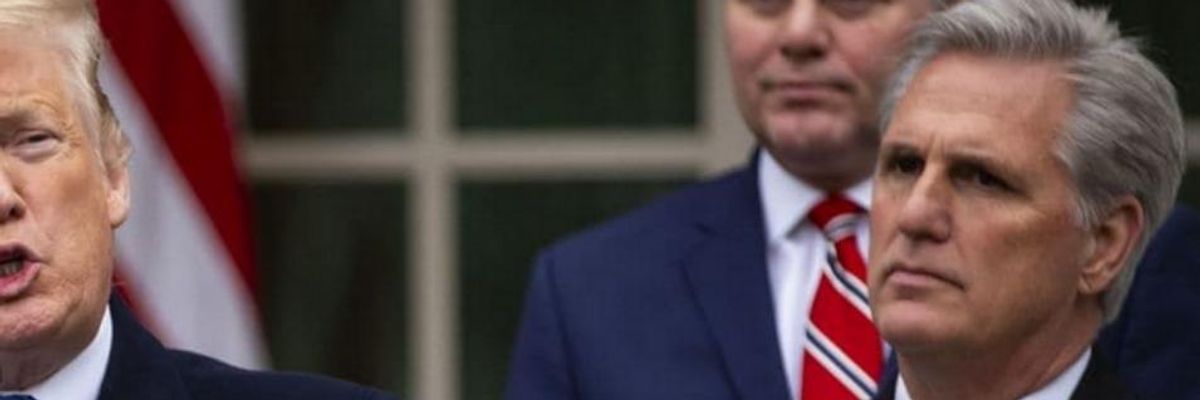In normal times it wouldn't matter so much that Congress has abdicated many of its constitutional powers to the president. But the times clearly are not normal, and a reassertion of congressional power could help calm our troubled political waters.
The current stalemate between Congress and President Trump has closed about a quarter of the federal government, but it also presents an opportunity. Despite the president's objections, Congress has the constitutional authority to end the crisis without appropriating money for a "wall" that most of its members regard (correctly, I think) as a colossal waste of taxpayer money. By so doing it could announce that it is once again the government's most powerful branch, reflecting the intent of those who drafted our Constitution in 1787.
The Constitution provides for a presidential veto, which President Trump has been threatening to use if the appropriations needed to reopen the government don't include money for a wall. But the Constitution also provides that two-thirds majorities in House and Senate can override vetoes.
Important legislation rarely commands two-thirds majorities in both houses. But what if most legislators would agree among themselves to be team members and support veto overrides even when they hadn't supported the original legislation? This single strategy could help make Congress once again the most powerful branch of the federal government. In the present situation, it would reopen the government despite presidential obstinacy about a "big beautiful wall."
You would think that for most members of Congress such an agreement would be a no-brainer. After all, everything else being equal, it is better to be part of a powerful branch of government than to be in a branch that has little real power.
Unfortunately our representatives and senators will find it difficult to achieve such a consensus, and I fear that Congress therefore will never be able to fix itself. By shifting responsibility for major decisions to the president, members of Congress may avoid being held responsible for decisions that are unpopular among some constituents. Many politicians may prefer re-election to bodies with few real powers over loss of their seats in a more powerful legislature.
There is often a conflict of interest between individual members of an organization and the organization itself. The larger the organization, the more this conflict may be decisive. If this is the case, then of our three branches of government Congress--with 535 members--would have the biggest problem in getting its act together. The Supreme Court, with only nine members, would have fewer problems maximizing its institutional clout. And the presidency obviously would have no conflict at all between the powers of the office and the interest of the person occupying that office. This might help to explain why the relative powers of the three branches have changed so dramatically since the signing of the Constitution.
Congress was originally the most powerful branch, then came the presidency, and finally the Supreme Court. It was no accident that the Constitution provided for these branches in exactly that order. Article I, dealing with Congress, was by far the longest. Article II, setting up the presidency, was the next longest. Article III, establishing the Supreme Court, was relatively short in comparison.
The Supreme Court before Chief Justice John Marshall (1801-1835) was so weak that several justices resigned, including two chief justices. Today it appears that the presidency is most powerful, the Supreme Court next most powerful, and Congress comes in third, exactly as we should expect if there is an inverse relationship between size and the clout of the organization. Institutional tendencies have trumped original Constitutional intent.
There are two things Congress would need to do in order to once again become the dominant branch. First, it needs to start making decisions without clearing them with the president first but with full due process of legislation--committee hearings, consultation of the public, listening to interested parties and experts from the administrative bureaucracies, careful drafting. Second, if the president vetoes legislation Congress must automatically enact it over the veto unless the president's explanation of the veto points to valid problems in the legislation that had not been noticed during the legislative process.
Separate items on the president's wish list would not count as a valid problem with the legislation.
It all sounds so simple. It would move us closer to our founders' intent in writing the Constitution. It would allow normal government services to continue, uninterrupted. But will it happen?

